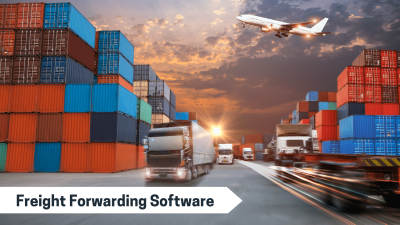The transportation industry in the U.S. is not only a key factor to the economy, but also to shipping companies all over the world. However, freight transportation isn’t just about getting products from one location to another. When transporting goods, companies must look at rates, demand, fuel prices, capacity, manufactures, retailers and so on.
Considering how transportation rates have been low the past couple of years, demand has also been low. But with a new year, comes new trends and a lot of change. This industry seems to have quite some big moves coming ahead. So we thought it’d be ideal to look at what will impact freight transportation this year.
Impacts on Freight Transportation
1. Drivers
There is a shortage of CDL drivers within the truck industry due to inefficient routes, improper packaging, retirement and small shipping packaging among other related factors. Therefore, it has become difficult for truck companies to hire CDL drivers. It takes about 4 to 5 months for new drivers to get their CDL license during the hiring and training process. However, many truck companies are trying to offer larger salaries and incentives as a way of retaining experienced and hardworking CDL drivers. Since they are more inclined to switch companies based on better career prospects.
2. Fuel Costs
Oil production in the U.S. is increasing enormously, but the demand for it is decreasing dramatically. As a result, the transportation industry is witnessing serious implications. Shippers are enjoying low fuel costs, but carriers are trying to increase rates as a way of overcoming its business expenditure.
3. Increased Regulations
Increased regulations, like the revision of the Hours of Service and Electronic Logging Device (ELD) requirements, are making an impact on productivity in the industry. These regulations help manage a truck driver’s hours, but the truck driver’s availability issue is still there. With the introduction of ELDs, company costs for hardware, software and training increase.
4. Infrastructure
The Fast Act allocated $305 billion to fund surface transportation through 2020. Badly needed road repairs and expanding the infrastructure along transportation routes is a primary goal of the Fast Act. This will effectively decrease travel time and also cut down traffic congestion.
5. Strong U.S. Dollar
The increase in the US dollar rate has actually reduced international shipping and export activity. This is a trend that might continue to follow throughout the year.
6. Capacity
Many truck companies purchased new trucks last year to replace old trucks. Meaning, that there’s an excess capacity growth in the market, thereby giving shippers the opportunity to demand lower rates for their freight loading. However, with the drop in Class 8 vehicle orders and the driver shortage, truck companies are expected to generate their income levels. While carriers will face higher costs due to new technology implementation.
7. Customer Service
Anyone in the shipping and transportation knows the importance of good customer service. People consider shipping an important factor when doing online shopping. They always look for the best rates and fastest times. But that sort of demand is expected to increase and change for years to come. Statistics actually predict that a customer’s experience will overpower price, product or brand choice when buying online. Thereby making, customer service a critical factor impacting freight transportation.
8. TMS (Transportation Management System)
Part of that technology implementation is a strategic move to meet government regulations, but another part of it is for efficiency and higher profit margins. New technology, such as a TMS, can help maximize a company’s revenue and reduce transportation costs by about 30%.
A transportation management system (TMS) brings many benefits to anyone who ships freight. TMS helps companies move freight from origin to destination efficiently, reliably, and cost effectively and in all modes. Although the main reason companies utilize TMS is to reduce costs, it also drives value because Shippers that implement a TMS solution have better customer service and freight savings.
BoxOn Logistics
Speaking of technology, improving business efficiency and cutting down costs, consider trying a FREE BOXON DEMO.
BoxOn clearly understands the need for automation when it comes to effective management of freight operations. With this ideology, the BoxOn Freight Forwarding software has been designed to fully assist Freight Forwarding Companies move on successfully with their business operations and streamline tasks.
Grow your business and let BoxOn Logistics be your solution.







COMMENTS